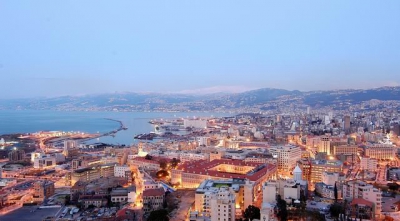Free France (French: France Libre) was a political entity that claimed to be the legitimate government of France following the dissolution of the French Third Republic. Led by French general Charles de Gaulle, Free France was established as a government-in-exile in London in June 1940 after the Fall of France during World War II and fought the Axis as an Allied nation with its Free French Forces (Forces franaises libres). Free France also supported the resistance in Nazi-occupied France, known as the French Forces of the Interior, and gained strategic footholds in several French colonies in Africa.
Following the defeat of the Third Republic by Nazi Germany, Marshal Philippe Ptain led efforts to negotiate an armistice and established a German puppet state known as Vichy France. De Gaulle rejected surrender, fled to Britain, and from there broadcast the "Appeal of 18 June" (Appel du 18 juin) exhorting the French to resist the Nazis and join the Free French Forces. On 27 October 1940, the Empire Defense Council (Conseil de dfense de l'Empire)later the French National Committee (Comit national franais or CNF)formed to govern French territories in central Africa, Asia, and Oceania that had heeded the 18 June call.
Initially, with the exception of French possessions in the Pacific, India, and Equatorial Africa, all the territories of the French colonial empire rejected de Gaulle's appeal and reaffirmed their loyalty to Marshall Ptain and the Vichy government. It was only progressively, often with the decisive military intervention of the Allies, that Free France took over more Vichy possessions, securing the majority of colonies by November 1942.
The Free French fought both Axis and Vichy troops and served in almost every major campaign, from the Middle East to Indochina and North Africa. The Free French Navy operated as an auxiliary force to the Royal Navy and, in the North Atlantic, to the Royal Canadian Navy. Free French units also served in the Royal Air Force, Soviet Air Force, and British SAS, before larger commands were established directly under the control of the government-in-exile. On 13 July 1942, "Free France" was officially renamed Fighting France (France combattante) to mark the struggle against the Axis both externally and within occupied France.
From a legal perspective, exile officially ended after the reconquest of North Africa since it allowed the Free French government to relocate from London to Algiers. From there, the French Committee of National Liberation (Comit franais de Libration nationale, CFNL) was formed as the provisional government of all French. The government returned to Paris following its liberation by the 2nd Armoured Free French Division and Resistance forces on 25 August 1944, ushering in the Provisional Government of the French Republic (gouvernement provisoire de la Rpublique franaise or GPRF). The provisional government ruled France until the end of the war and afterwards to 1946, when the Fourth Republic was established, thus ending the series of interim regimes that had succeeded the Third Republic after its fall in 1940.
On 1 August 1943, L'Arme d'Afrique formally united with the Free French Forces to form the French Liberation Army. By mid-1944, the forces of this army numbered more than 400,000, and they participated in the Normandy landings and the invasion of southern France, eventually leading the drive on Paris. Soon they were fighting in Alsace, the Alps and Brittany. By the end of the war, they were 1,300,000 strongthe fourth-largest Allied army in Europeand took part in the Allied advance through France and invasion of Germany. The Free French government re-established a provisional republic after the liberation, preparing the ground for the Fourth Republic in 1946.
Beirut is the capital and largest city of Lebanon. As of 2014, Greater Beirut has a population of 2.2 million, which makes it the third-largest city in the Levant region. The city is situated on a peninsula at the midpoint of Lebanon's Mediterranean coast. Beirut has been inhabited for more than 5,000 years, and was one of Phoenicia's most prominent city states, making it one of the oldest cities in the world (see Berytus). The first historical mention of Beirut is found in the Amarna letters from the New Kingdom of Egypt, which date to the 14th century BC.
Beirut is Lebanon's seat of government and plays a central role in the Lebanese economy, with many banks and corporations based in the city. Beirut is an important seaport for the country and region, and rated a Beta + World City by the Globalization and World Cities Research Network. Beirut was severely damaged by the Lebanese Civil War and the massive explosion in the Port of Beirut. Its cultural landscape underwent major reconstruction.

1941Jul, 7
World War II: Beirut is occupied by Free France and British troops.
Choose Another Date
Events on 1941
- 17Mar
Franklin D. Roosevelt
In Washington, D.C., the National Gallery of Art is officially opened by President Franklin D. Roosevelt. - 26Jul
French Indochina
World War II: In response to the Japanese occupation of French Indochina, US President Franklin D. Roosevelt orders the seizure of all Japanese assets in the United States. - 17Sep
Great Patriotic War
World War II: A decree of the Soviet State Committee of Defense, restoring Vsevobuch in the face of the Great Patriotic War, is issued. - 12Dec
Hungary
World War II: The United Kingdom declares war on Bulgaria. Hungary and Romania declare war on the United States. India declares war on Japan. - 14Dec
Thailand
World War II: Japan signs a treaty of alliance with Thailand.

 English
English  español
español  français
français  português
português  русский
русский  العربية
العربية  简体中文
简体中文 